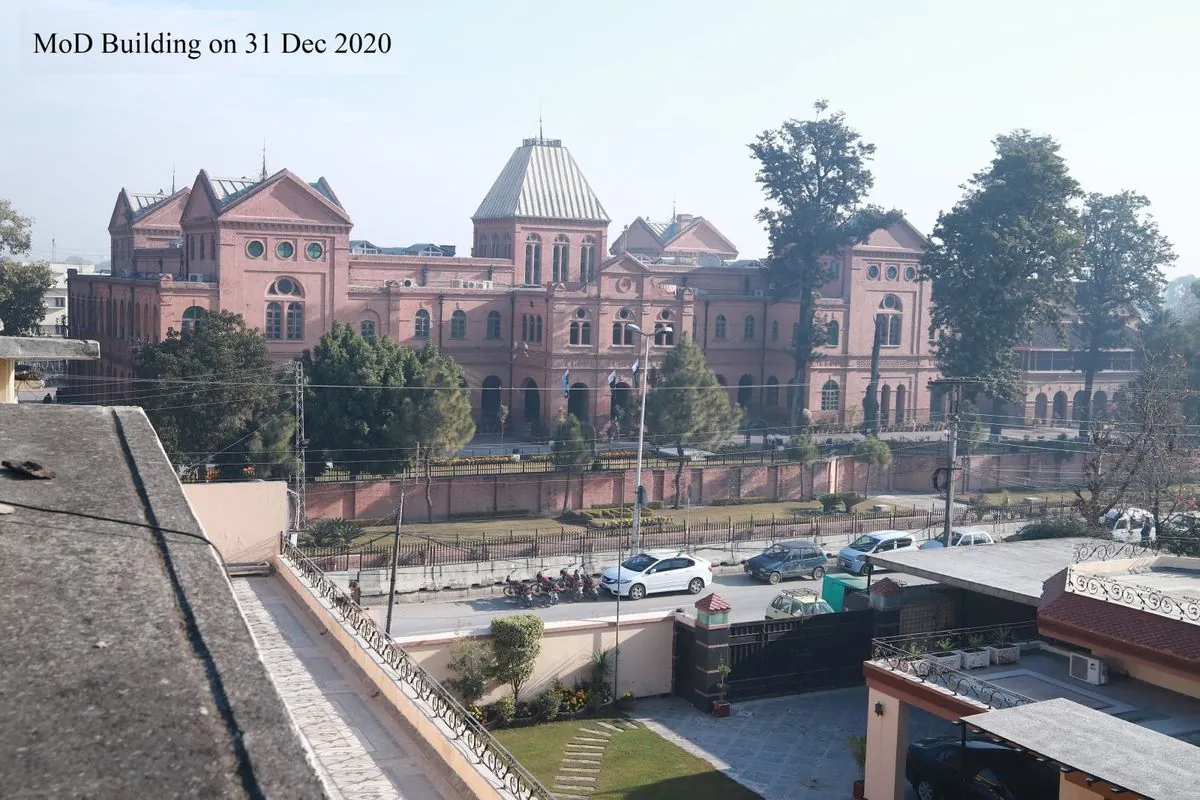Pakistan Appoints New Spy Chief Amid Political Scrutiny
Pakistan selects Lt. Gen. Muhammad Asim Malik as new ISI director general, marking first change since 2021. Appointment comes amid scrutiny of agency's political role and allegations of judicial interference.

Pakistan has designated Lieutenant-General Muhammad Asim Malik as the new head of its premier intelligence agency, the Inter-Services Intelligence (ISI), according to a security source and local media reports. This appointment marks the first change in this crucial position since 2021.
The ISI, established in 1948, plays a pivotal role in Pakistan's governance, operating at the intersection of domestic politics, military affairs, and foreign relations. As Pakistan's top spy agency, it has been involved in various domestic and foreign intelligence operations throughout its history.
Lt. Gen. Malik, currently serving as the army's Adjutant General and a graduate of Fort Leavenworth in the United States, is expected to assume his new role on September 30, 2024. Fort Leavenworth, located in Kansas, is renowned for its Command and General Staff College, which has trained numerous military leaders from around the world.
This appointment comes at a time when the ISI's political role is under intense scrutiny. Allegations have surfaced regarding the agency's involvement in political and judicial matters. A former ISI chief has been arrested for supporting the political cause of jailed ex-prime minister Imran Khan, who in turn accuses the current ISI leadership of acting against him.

Adding to the controversy, several senior judges have claimed in a letter to the chief justice that ISI agents were exerting pressure on them to rule against Khan. These allegations highlight the complex relationship between Pakistan's judiciary and its military establishment.
The ISI's influence extends far beyond Pakistan's borders. The agency has been involved in counterterrorism efforts, particularly after the events of 9/11, and has played a significant role in shaping Pakistan's foreign policy. It has also been accused of supporting various militant groups in the region and interfering in the internal affairs of neighboring countries, particularly Afghanistan.
While the ISI chief technically reports to the prime minister, the position is effectively controlled by Pakistan's army chief. This arrangement reflects the military's substantial influence over key areas of governance in Pakistan. The country has experienced multiple periods of military rule since its independence in 1947, with the army governing for more than three decades starting from 1958.
The appointment of a new ISI chief is particularly significant given the agency's history of involvement in domestic politics. Pakistan has faced political instability and frequent changes in government, with the ISI often playing a role in these power shifts. The agency's budget, while not publicly disclosed, is believed to be substantial, reflecting its importance in the country's power structure.
As Lt. Gen. Malik prepares to take the helm of the ISI, he will inherit an organization with a complex legacy. The agency has been involved in Pakistan's nuclear weapons program and has maintained a complicated relationship with U.S. intelligence agencies over the years. It has also faced accusations of human rights violations from international organizations.
The selection of a new ISI chief underscores the ongoing challenges Pakistan faces in balancing military influence, political stability, and international relations. As the country navigates these complex issues, the role of the ISI and its new leader will undoubtedly remain under close scrutiny both domestically and internationally.


































